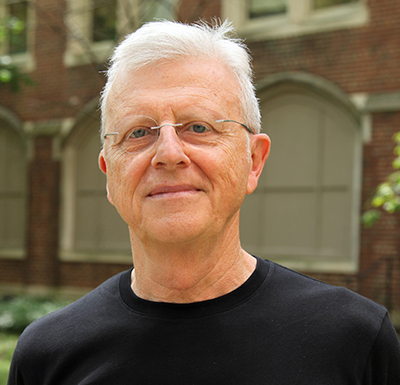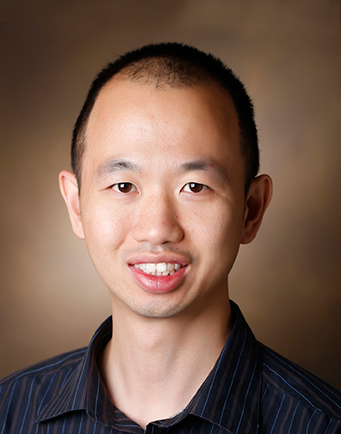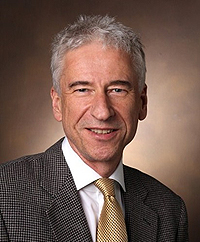Author
NIH grant bolsters research on heart disease, cholesterol
Jan. 22, 2021—Jan. 21, 2021, 10:39 AM by Bill Snyder Thanks to major funding from the National Institutes of Health (NIH), researchers at Vanderbilt University Medical Center have made major inroads in understanding how high-density lipoprotein (HDL), commonly known as good cholesterol, in some cases may actually contribute to the development of atherosclerosis. But there is...
WIN for blocking cancer growth
Jan. 22, 2021—Jan. 21, 2021, 10:00 AM by Sarah Glass WDR5 is a protein that is overexpressed in a variety of cancers. Inhibiting WDR5 by targeting the WDR5-interaction (WIN) site can inhibit the growth of cancer cells in vitro, but this mechanism of action has not been fully elucidated. Publishing in Cell Reports, William Tansey, PhD, Alissa Guarnaccia and...
Early research shows promise for therapeutics that delay Type 2 Diabetes
Jan. 12, 2021—by Marissa Shapiro Jan. 12, 2021, 9:00 AM Vanderbilt researchers have discovered a unique pathway that initiates islet β cell inflammation—a hallmark of type 2 diabetes—putting them a step closer to developing targeted therapeutics for the disease that affects one in 10 Americans. Wenbiao Chen (Vanderbilt University) The article, “RIPK3-mediated inflammation is a conserved β-cell...
Borden Lacy named director of Vanderbilt’s Center for Structural Biology
Jan. 11, 2021—by Marissa Shapiro Jan. 11, 2021, 9:00 AM Borden Lacy (Vanderbilt University) Borden Lacy, Edward and Nancy Fody Chair in Pathology and professor of biochemistry and pathology, microbiology and immunology, has been named director of the Vanderbilt Center for Structural Biology. She is taking the reins from Walter Chazin, Chancellor’s Chair in Medicine and professor...
Vanderbilt researchers take leadership role in COVID-19 vaccine development
Dec. 18, 2020—by Marissa Shapiro Dec. 18, 2020, 11:55 AM Work on COVID-19 theraputics at Vanderbilt University Medical Center (VUMC) As the United States and the rest of the world witness the rollout of new vaccines targeting COVID-19—as well as better treatment options to fight the virus among infected patients—Vanderbilt University and Vanderbilt University Medical Center have...
ASMBMTODAY Features Breann Brown
Oct. 22, 2020—Breann Brown works to be honest about the Black experience in academia without scaring talented students away from science. By Leia Dwyer October 19, 2020 The phrase “the mitochondria is the powerhouse of the cell” has a jokey reputation in American education as a hallmark of middle school memorization-based learning. Breann Brown researches the structural...
Interdisciplinary melanoma research brings understanding of cellular resistance to cancer treatment, opening doors to new cures
Oct. 22, 2020—by Marissa Shapiro Oct. 21, 2020, 12:00 PM A Vanderbilt cancer systems biology team has identified the enzymes that keep tumor cells growing in the presence of drug treatment, opening the door to stopping these cells dead in their tracks. An article, “An Integrative Gene Expression and Mathematical Flux-Balance Analysis Identifies Targetable Redox Vulnerabilities in...
Preserving gut mucus architecture
Oct. 22, 2020—Oct. 20, 2020, 8:00 AM by Leigh MacMillan Interactions between microbes and host cells in the gastrointestinal tract have been implicated in the development and progression of colorectal cancer. Current techniques to study gut microbes and host cells preserve these populations separately, removing the opportunity to explore spatial interactions between them. Ken Lau, PhD, and...
Lindsley named Warren Center for Neuroscience Drug Discovery director
Oct. 22, 2020—by Ryan Underwood Oct. 20, 2020, 11:50 AM Craig Lindsley, the William K. Warren, Jr. Chair in Medicine and University Professor of Pharmacology, Biochemistry and Chemistry, will become director of the Warren Center for Neuroscience Drug Discovery, effective Dec. 1. (John Russell/Vanderbilt) Craig Lindsley, the William K. Warren, Jr. Chair in Medicine and University Professor...
Vanderbilt researchers make counterintuitive discoveries about immune-like characteristics of cells, chemotherapy’s impact on tissue growth
Oct. 22, 2020—by Marissa Shapiro Oct. 15, 2020, 12:00 PM Vanderbilt University researchers have reported the counterintuitive discovery that certain chemotherapeutic agents used to treat tumors can have the opposite effect of tissue overgrowth in normal, intact mammary glands, epidermis and hair follicles. The researchers also are the first to report the discovery of an innate immune...









